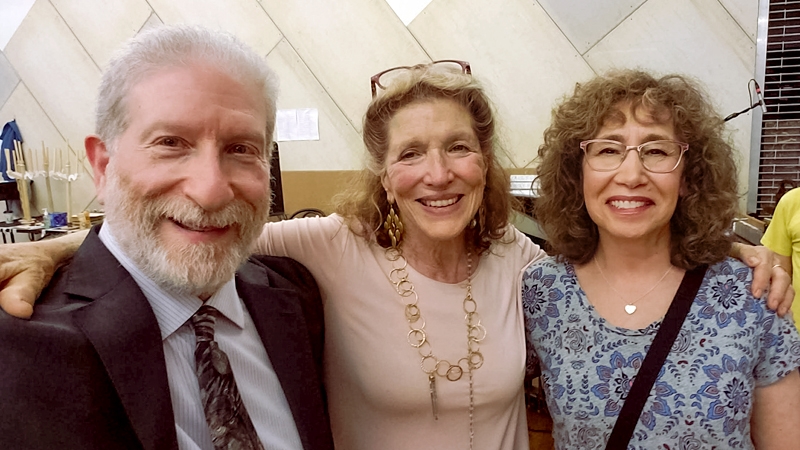Big musicals, by their very nature, often require mass spectacle. But people regularly see productions of great size that leave them walking out of the theatre shaking their heads in puzzlement–they were impressed with the production values…why didn’t they like the show more?
One of my guiding principles is: “I’d rather be moved by the human story than impressed by empty spectacle.” And I believe that whether they can articulate it or not, audiences feel the same way. If they leave the theatre having been dazzled by the beautiful sets, costumes, singing and dancing, but no
t brought to tears, laughter, thought or wonder, they have just been given an empty experience. Every good director understands that spectacle must serve the story–not be there for its own sake. But even experienced directors can forget this from time to time. When crafting a show, there’s always the risk of getting sucked into the spectacle and losing focus. A director’s precious, limited time can be monopolized by the many pressing details of staging large numbers and managing vast technical elements.
Before he knows it, he’s only thinking about the how and not the why. Then he loses sight of two important truths: that everything, from the smallest detail to the most massive production number, must arise organically from the human story–the strivings, longings, passions, joys and disappointments of its characters. And that large musicals of quality are large not to lure larger audiences, but because there is simply no other way to adequately tell them.

Oliver, Beck Center for the Arts, Lakewood, OH. Directed by Fred Sternfeld.
I even break this down further, and ask a question most take for granted–why do people sing in musicals at all? “Huh? Why, because it’s a musical,” one might answer. “That’s what people do in musicals: sing.” Yes, but why? And why are we willing to suspend our disbelief and accept this strange convention? Again, the answer is simple: people sing in musicals because they must. What they are feeling, what they are going through, is so powerful, so large, that normal words cannot adequately express it. Their hearts are about to explode like a cannon and when they open their mouths they must sing. If directors, actors, choreographers and designers approach musicals from this point of view–that the spectacle must never be there to serve itself, but the story–and that the characters’ stakes and needs are so powerful that only singing and dancing can express their depth–then a musical has a better than average chance of moving its audience.
The final point of view I bring to large musicals can be summed up this way: large arises from small. Just as a human body arises from billions of individual cells, so does a production number, a sprawling set, an ensemble arise from its smaller elements. Of any praise I may receive from critics, the one that means the most to me is when they note that a large production of mine was not only lavishly staged and expertly constructed, but that each small moment was polished to perfection. Because it’s the small moments that hold the key to moving an audience. It’s why I insist that the even the smallest ensemble member do a detailed biography for their character. Actors sometimes roll their eyes at this. “Why bother? I mean, man, I’m just in the ensemble. It doesn’t matter.”
Oh, yes it does. It matters profoundly. Somehow, through the magical connection between actors and audience, it makes a big difference. It brings an ensemble to life. They are no longer some large human lump but a group of individuals with their own points of view and reactions. Detail explodes from them. So does passion and exuberance. They are no longer dancing or singing simply for a paycheck or for the fun of performing, but from the needs of their character.
Like all theatrical truths, these can often get trampled in the rush to spectacle. And it seems to me that it happens more and more. For ]\, they are something I must never allow myself to forget. Because nothing bothers me more than a full stage and an empty heart.
[featured picture: Peter Pan, Beck Center for the Arts. Directed by Fred Sternfeld.]




